#central synagogue
Text
This central synagogue Barbie themed Purim service is more unhinged then those Church of the Rock Easter plays….
Clergy dressed up in character did a bit
Kids came out and did Barbie themed Purim play/skit
Clergy read scripture in character
Clergy singing songs from soundtrack doing little bits
#random ramblings#jenny nicholson#church play cinematic universe#church of the rock#central synagogue
3 notes
·
View notes
Photo

Inside the Central Synagogue on Great Portland Street in London, England during Yom Kippur. Engravure from 1877.
16 notes
·
View notes
Text
“from the depths of our oy”
2 notes
·
View notes
Text
youtube
“The Third Opinion: Why Jews Value Dissent | Rabbi Angela Buchdahl | Yom Kippur 5782” from Central Synagogue
#The Third Opinion: Why Jews Value Dissent#Rabbi Angela Buchdahl#Angela Buchdahl#Central Synagogue#Jewish Studies#Religion & Magic
0 notes
Text
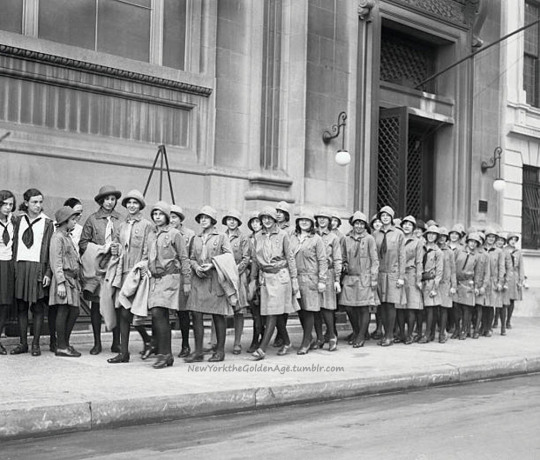
***Note: Either Tumblr or I scrambled my queue, because I meant to post this tomorrow, October 5. Well, Yom Kippur does begin at sundown. Apologies.***
Today is Yom Kippur, the Jewish Day of Atonement. In 1929, Jewish Girl Scouts attended services at a Spanish synagogue on Central Park West.
Photo: Bettmann Archives/Getty Images
#New York#NYC#vintage New York#1920s#Yom Kippur#Day of Atonement#Girl Scouts#synagogue#vintage NYC#Spanish synagogue#Central Park West#religious service
195 notes
·
View notes
Text
Out of curiosity, do I have any followers who are particularly familiar with (have lived in or otherwise) either Marburg, Oslo, or Graz?
I am poking (very) tentatively at my school's study abroad options, since with scholarships it might actually be a more affordable option for the spring semester (and has long been a dream of mine, so it means a lot that it might actually be within reach) and I've narrowed it down to one of those three programs. Beyond the costs and academics though, I'd be curious to know if anyone has anything else to say in favor of or against any of the cities, since I would obviously also be picking a place to live for 4-5 months.
#my school lets students apply their financial aid towards study abroad which i did not realize until recently and changes everything#especially since i could maybe make up some of the money i'm not getting from the state this year with school abroad scholarships#leaning towards marburg at the moment because it's fairly central and i'd want to travel while i'm there#and close enough to frankfurt that i could visit the synagogue there sometimes which would mean a lot to me#i speak more norwegian than german but tbqh that's actually a point in favor of germany/austria (could learn more while i'm there)#also yes. european friends. on top of everything else this is my latest scheme to maybe finally visit some of you
13 notes
·
View notes
Text
Exploring Bosnia and Herzegovina: A Comprehensive Travel Guide
A Brief History of Bosnia and Herzegovina
Bosnia and Herzegovina, nestled in the heart of the Balkans, has a rich and tumultuous history. The region was part of the Roman Empire and later the Byzantine Empire before becoming the medieval Bosnian Kingdom in the 12th century. The Ottoman Empire took control in the 15th century, influencing the culture and religion of the region significantly. In…

View On WordPress
#A Brief History of Bosnia and Herzegovina#A Brief History of Bosnia and Herzegovina Bosnia and Herzegovina#a visa is not required for stays of up to 90 days within a 180-day period. However#adventure#africa#aiming to improve standards and align with European norms. Visa Information For many nationalities#along with the Brčko District. The country continues to navigate its post-war recovery and development#and after World War II#and architectural influences that are still visible today in cities like Sarajevo and Mostar. Political Situation Today#and baklava (sweet pastry). The culture is warm and hospitable#and Banja Luka International Airport. The country has a growing infrastructure with well-maintained roads and an expanding public transporta#and Central European influences. Must-try dishes include cevapi (grilled sausages)#and cultural tours are popular activities. Q: How affordable is accommodation in Bosnia and Herzegovina? A: Accommodation is affordable#and entertainment are reasonably priced#and higher education. The country boasts several universities#and historical landmarks to learn about the rich history and culture. Safety Bosnia and Herzegovina is generally safe for tourists. However#and Jajce are top destinations. Q: What activities can tourists enjoy in Bosnia and Herzegovina? A: Hiking#and Roman Catholicism being the major religions. This diversity is reflected in the numerous mosques#and Roman Catholicism. Q: What are some traditional foods to try in Bosnia and Herzegovina? A: Cevapi#and synagogues. Food and Culture Bosnian cuisine is a delightful blend of Ottoman#and University of Mostar. Education reforms are ongoing#Blagaj#Bosnia and Herzegovina came under Austro-Hungarian rule. Following World War I#Bosnia and Herzegovina is a democratic republic with a complex political structure divided into two main entities: the Federation of Bosnia#burek#burek (filled pastry)#but it&039;s advisable to carry some cash for use in smaller towns and rural areas. Top Places to Visit Sarajevo: The capital city#but it’s good to carry some cash for rural areas. Q: What are some must-visit places in Bosnia and Herzegovina? A: Sarajevo#churches#credit and debit cards are widely accepted in cities and tourist areas
0 notes
Text
I think that I’ve realized one of the big reasons that antisemites are so anti-Israel—I mean, aside from it being a state where a lot of Jews are.
Israel is a state that protects Jews. It also does a lot of bad things under the Likud government. And it also harms Jews that get in the way of the Likud government. But none of that matters to antisemites.
Because a state is an institution. And the left has been very clear that it’s all about criticizing institutions.
And in the absence of a governing religious body to criticize, the Israeli state is all the leftist antisemites have to criticize.
They can’t seem to fathom that the leadership of Israel is not in anyway synonymous with a religious institution. They cannot seem to fathom that the Likud government isn’t in any way representative of Jewish people as a whole—and not even of Israelis as a whole! (Once again, Israel is a parliamentary system. It’s about who has the largest proportion of votes, not a majority) and that Jews in Israel as well as non-Jews in Israel have a say in who to vote for and often strongly oppose Likud and Netanyahu.
It’s like a whole chunk of otherwise progressive people have been waiting for a way to criticize all Jews by attacking some institution they think speaks for us.
They cannot fathom that we are literally just a small ethnic group with half of our number in one location and would very much like for us and for them to not be victims of violence. That’s the uniting principle.
They’ve continually demonstrated how little they know and understand about Judaism, Jewish culture, and Jewish history.
I genuinely do not know if they’re aware that there’s no supreme Jewish council or whatever. There’s no Jewish version of the Grand Imam, Grand Ayatollah, Dalai Lama, Celestial Master, or Head/President of the Church.
We don’t even have a main synagogue from which edicts or traditions flow. We did have one. The Wall in Israel was our main institution. But colonizers and invaders destroyed it. And other religions built their institutions on top of it. And the religious governing body of Jews fell apart thousands of years ago.
…so the only thing that holds us together is each other. Rabbis don’t answer to some central authority. We hold traditions together through culture and traditions and connection to our land of origin, like many our even most other indigenous cultures.
But, because there is one (1) place on the entire planet where Jews are a majority of the population and not a minority, suddenly vicious attacks on the character of Jews everywhere are fair game as long as antisemites pretend they are talking about “Israel.” But they aren’t talking about the State of Israel. Because they get mad whenever we tell them to please specify the current government and the Likud party, because they are the ones responsible for carrying out the needless violence.
But they won’t do that. They seem to believe that there is some uniting religious force that exists in the Israeli government. And they seem to think that we are all united by this religious directive of “Zionism.”
That’s the only way any of their criticisms make sense logically. They don’t see themselves as attacking actual humans. They see themselves as attacking institutions. And any Jew who disagrees with them? Well they are just bastards supporting the institution.
But…there is no supreme Jewish institution. It doesn’t exist. It doesn’t exist because they destroyed those institutions.
They’re making themselves feel good by thinking attacking Jews is somehow helping free Palestine. But it’s just attacking Jews.
It’s like a weird continuation of supercessionism. They’re projecting their religious structure onto a religion that is fundamentally incompatible with that structure.
265 notes
·
View notes
Text
Jewish American Heritage Month
May is Jewish American Heritage Month, there's no way I can make a post to highlight ALL the ways Jewish Americans have contributed to American life, culture, politics and History but here are a few
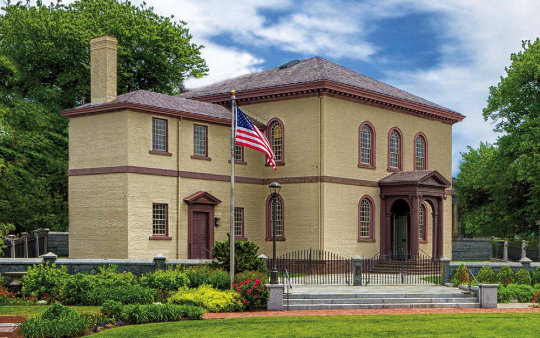
The Touro Synagogue in Newport Rhode Island is the oldest Synagogue in the United States, built in 1763 for a congregation that dates back to 1658 when 15 Sephardic families moved to America. Touro is also famous for a letter sent to them by President George Washington in 1790 where he assured them of freedom of religion in the new United States:
... the Government of the United States ... gives to bigotry no sanction, to persecution no assistance. ... May the children of the Stock of Abraham, who dwell in this land, continue to merit and enjoy the good will of the other Inhabitants; while every one shall sit in safety under his own vine and fig tree, and there shall be none to make him afraid. May the father of all mercies scatter light and not darkness in our paths, and make us all in our several vocations useful here, and in his own due time and way everlastingly happy.
- Letter of George Washington to the Hebrew Congregation in Newport, Rhode Island
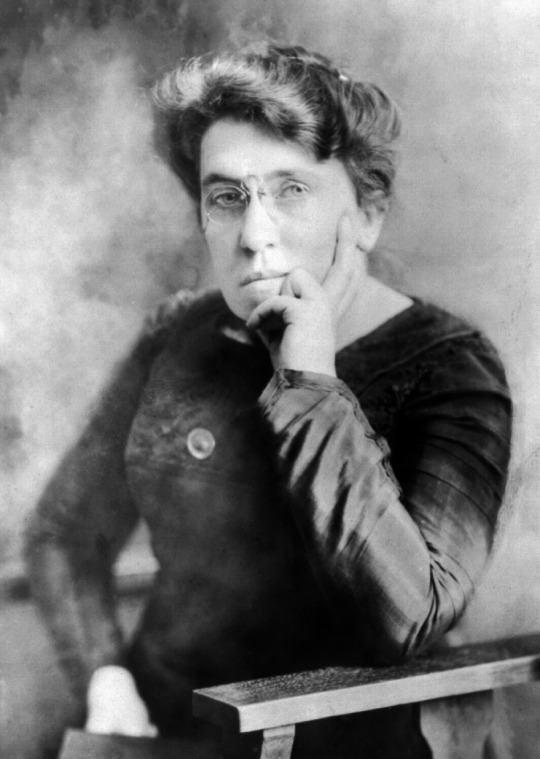
Emma Goldman (1869-1940) Born in what is today Lithuania Goldman immigrated to the United States at the age of 16. She would become in the 1890s one of the leading voices of the anarchist movement and remains one of Anarchisms most important thinkers. Goldman also spoke out and was arrested for supporting birth control at a time when it was illegal. She supported Free Love and even gay rights before the dawn of the 20th Century making her the only major figure of her time to speak out in favor of homosexual love.
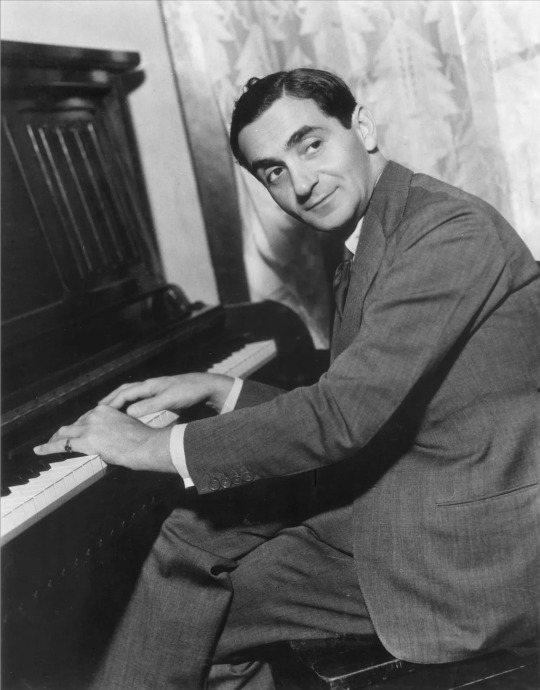
Irving Berlin (1888-1989) Born in what is today central Russia, the Berlin family immigrated to America when Irving was 5 years old. Starting with 1911's "Alexander's Ragtime Band" Berlin would go on to write upwards of 1,500 songs over his 60 year music career. He wrote the scores for 20 Broadway shows, 15 Hollywood movies, was nominated for 8 Oscars and had 25 number one songs on the charts. His most famous songs include, Puttin' on the Ritz, Cheek to Cheek, White Christmas, Anything You Can Do (I Can Do Better), and There's No Business Like Show Business. Fellow Jewish composer George Gershwin (1898-1937) declared Berlin "the greatest songwriter that has ever lived"
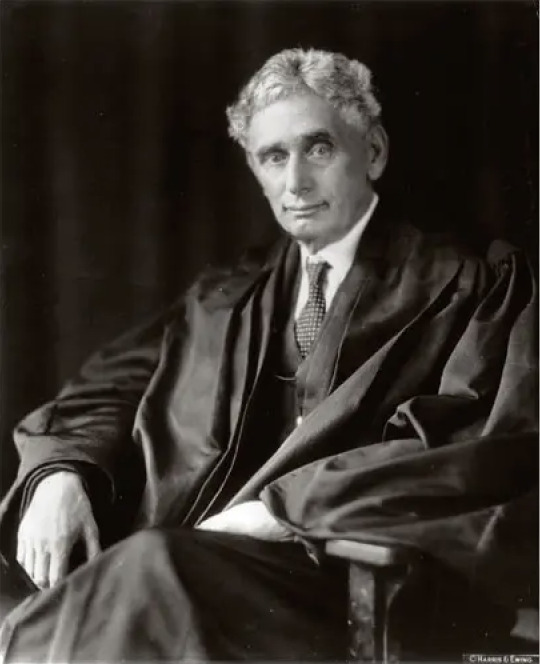
Louis Brandeis (1856-1941) A towering legal mind Brandeis would in the early 1900s earn the nickname "The People's Lawyer" for refusing payment in cases for "the public interest" Brandeis fought many antitrust cases in court and fought businesses in court in support of early work place safety laws. Brandeis was also the first to articulate the idea of a Right to Privacy in 1890. Brandeis idea would become the basis of rulings supporting the right to birth control, abortion, and gay rights. Nominated to the Supreme Court in 1916 Brandeis was the first Jewish Justice and was vehemently opposed by antisemites. Fellow Justice James Clark McReynolds refused to speak to Brandeis for years, never signed his name to opinions written by Brandeis, and would often openly start reading a news paper when Brandeis read his opinions from the bench. McReynolds, along with Justices Pierce Butler and Willis Van Devanter sent a letter to President Hoover begging him to not "afflict the Court with another Jew" when he appointed the second Jewish Justice, Benjamin Cardozo, in 1932. Brandeis served 23 years on the Court from 1916 till 1939 and is regularly counted as one of the greatest Justices to ever serve championing Free Speech and progressive policies often from opposition to the Conservative majority of the time.
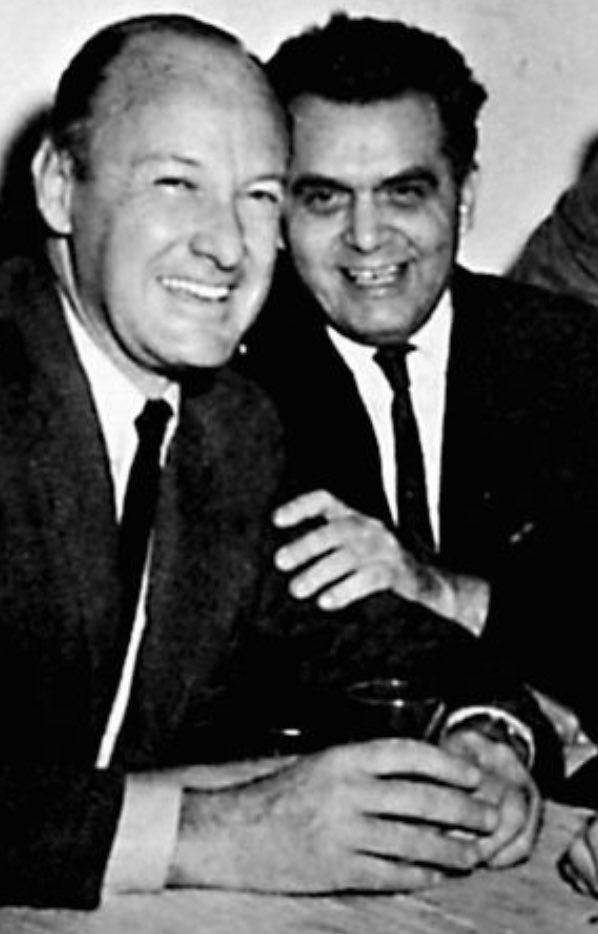
Stan Lee (1922-2018) and Jack Kirby (1917-1994) Born Stanley Lieber and Jacob Kurtzberg respectively, Lee and Kirby were among countless Jews who adopted less Jewish sounding names in hopes of escaping discrimination. Lee and Kirby along with countless other Jewish artists and writers formed the backbone of the Golden and Sliver ages of comics. Characters such as Batman and Superman had Jewish creators. Kirby and Lee themselves are responsible for such cultural icons as Captain America, Thor, Hulk, Fantastic Four, Spider-Man, Iron Man, Black Panther, Daredevil, and The X-Men. The preponderance of Jews in the early comics was a result of persistent discrimination against Jews. High class advertising agencies didn't want Jewish artists drawing their ads and literary magazines like The New Yorker weren't interested in Jewish staff writers. So young Jewish artists and writers found themselves in the "less respectable" world of pulp and penny comics where they made a huge cultural impact though many, like Kirby, would fight for years to get the money they deserved and many never did.
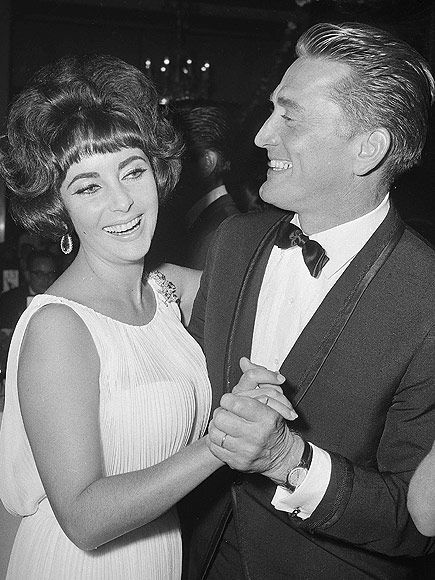
Elizabeth Taylor (1932-2011) Kirk Douglas (1916-2020) Douglas was born "Issur Danielovitch" but changed his overly Jewish sounding name to make it in the Hollywood of the 1940s and 50s. regarded as one of the greats of classic Hollywood Douglas would be nominated for Oscar for Best Actor 3 times, for Champion (1949), The Bad and the Beautiful (1952) and Lust for Life (1956). He is most well known for his work with Jewish filmmaker Stanley Kubrick (1928-1999) who's first two major films Paths of Glory (1957) and Spartacus (1960) starred Douglas who was also a producer, they are still thought of as some of the best films ever made. Kirk Douglas is also the father of actor Michael Douglas(1944-) Elizabeth Taylor was an iconic star of the Golden Age of Hollywood. Best known for Cleopatra (1961), Who's Afraid of Virginia Woolf? (1966) and The Taming of the Shrew (1967). Taylor converted to Judaism in 1959. An iconic beauty, Taylor was married 8 times to 7 different men (she divorced and remarried and divorced again many time co-star Richard Burton) including to the heir of the Hilton fortune and a US Senator. In the 1980s she would become one of the leading celebrities speaking out and raising money to fight AIDS at a time when fellow Hollywood Star, President Reagan, refused to even say the word in public.
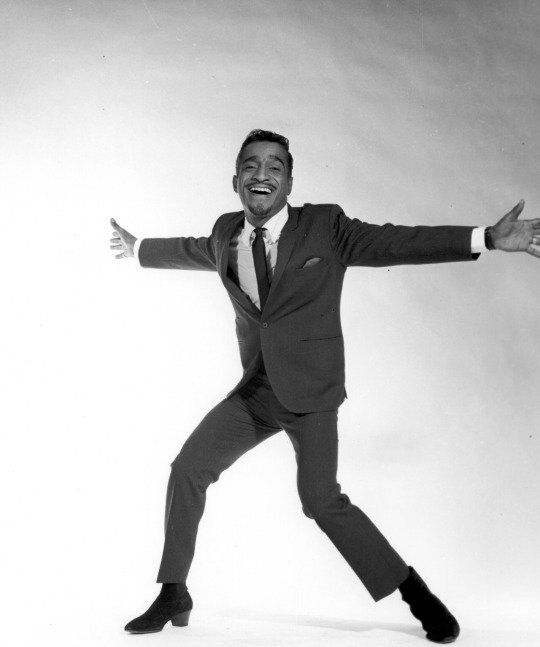
Sammy Davis Jr. (1925-1990) A singer, dancer, performer and actor Davis was one of the most popular acts of the 1950s and 60s. Well known for performing with Dean Martin and Frank Sinatra in what was known as the Rat Pack. Davis would star along side Martin and Sinatra in Ocean's 11 (1960) as well as other Rat Pack films. In the 1980s he toured with Sinatra and Liza Minnelli. Davis was politically active and influential using his fame to push Presidents Kennedy and Nixon on civil rights. Davis' cross over popularity and being booked to co-star with white acts helped break down the color barrier and push integration. After a nearly fatal car accident in which Davis lost his left eye (he wore a glass eye for the rest of his life) in 1954 he began his path to conversion formally converting to Judaism in 1961.
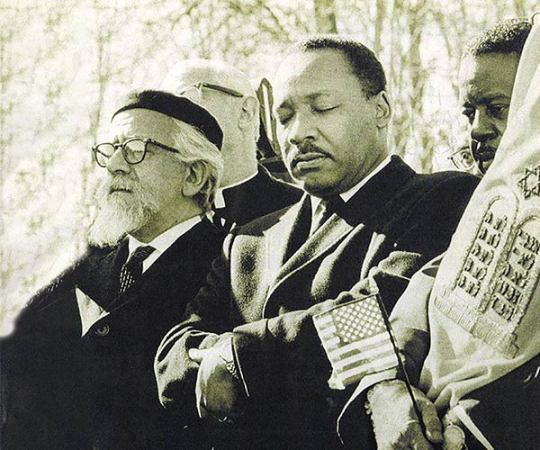
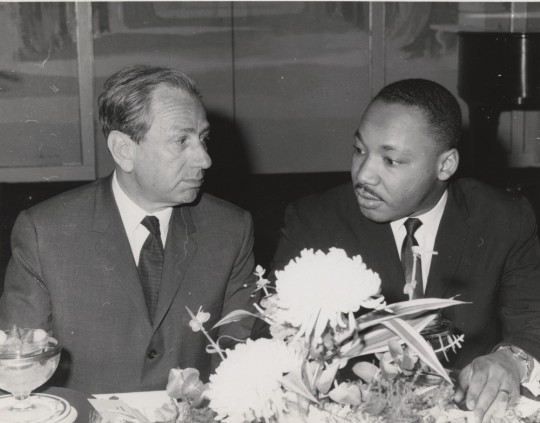
Rabbi Abraham Joshua Heschel (1907-1972) with Dr. Martin Luther King Jr. and Rabbi Joachim Prinz (1902-1988) with King. Both Heschel and Prinz were Rabbis in Europe before WWII, Prinz in particular had served as a Rabbi in Berlin in the 1930s and was expelled from Germany by the Nazis in 1937 for embarrassing them internationally. Both men settled in the United States after leaving Europe and would become leading lights of American Jewish community. Prinz would serve as the President of the American Jewish Congress from 1958 till 1966, he would help create the Conference of Presidents of Major American Jewish Organizations in 1956 and be its President from 1965 till 1967. Heschel wrote a number of highly influential books such as Man Is Not Alone, God in Search of Man, The Sabbath, and The Prophets which are still widely read today. Both men felt called on by their experiences with the Nazis to become involved in the 1960s Civil Rights movement. Heschel was close personal friends with Dr. King and marched with him many times, most famously the 3rd Selma to Montgomery march between Dr King and John Lewis who'd been beaten badly at an earlier march. Prinz served as one of the organizing forces behind the 1963 March on Washington and Prinz gave the speech directly before Dr. King's famous "I Have a Dream" Speech. Heschel acted as a Jewish representative at the Catholic Church's Second Vatican Council where he was able to get the Church to drop centuries old antisemitic lines blaming the Jews for the death of Jesus from the liturgy.

Andrew Goodman (1943-1964), James Chaney (1943-1964), and Michael Schwerner (1939-1964) In the summer of 1964 The Congress for Racial Equality (CORE) launched a massive effort to register disenfranchised black voters in Mississippi to vote, they called the effort Freedom Summer. Goodman and Schwerner both natives of New York were among the hundreds of CORE volunteers from the North who came south to help local activists like Mississippi native Chaney with the registration drive. Many of the white northern volunteers, like Goodman and Schwerner were Jewish, Jews had also been heavily represented among the white Freedom Riders of 1961. On June 21, 1964 Goodman, Schwerner, and Chaney were pulled over together by a Deputy Sheriff before being set upon by a conspiracy of local KKK members. The 3 were murdered, and their bodies hidden in an earthen dam, there is some evidence that Goodman was still alive when he was buried. Their disappearance set off a massive FBI lead search known as Mississippi Burning. Public outrage particularly fueled by the image of the 3 men's crying mother's arm in arm at Chaney's funeral would help push through the Civil Rights act of 1964.

Bob Dylan (1941-) Born Robert Zimmerman Dylan lead the American Folk revival of the early 1960s. His songs Blowin' in the Wind (1963) and The Times They Are a-Changin' (1964) became anthems of both the Civil Rights and Anti-War movements of the 1960s. His 1965 transition from Folk to Electric pushed Dylan to the forefront of late 1960s Rock and Roll. Dylan is often ranked as one of the most iconic artists of the 1960s ranked up along side the Beatles. His musical influence is massive and still felt today. In 2016 Dylan was awarded the Nobel Prize in Literature for "for having created new poetic expressions within the great American song tradition"

Mel Brooks (1926-) and Gene Wilder (1933-2016) born Melvin Kaminsky and Jerome Silberman respectively. Brooks is a comedic legend, writing and directing for film and stage. Brooks is one of only 18 people to complete the EGOT (Emmy, Grammy, Oscar, Tony Awards). Brooks collaborated with Wilder on a number of his most famous works, The Producers (1967), Blazing Saddles (1974), and Young Frankenstein (1974). Other works include History of the World, Part I (1981), Spaceballs (1987), and Robin Hood: Men in Tights (1993). Just this year at the age of 96 Brooks wrote and produced History of the World, Part II a TV series sequel to his 1981 film. Wilder worked closely with Brooks as well as with Richard Pryor. He had a star turn in Everything You Always Wanted to Know About Sex* (*But Were Afraid to Ask) (1972). Wilder is best known for his iconic role of Willy Wonka in 1971's Willy Wonka & the Chocolate Factory.

Gloria Steinem (1934-), Bella Abzug (1920-1998), Betty Friedan (1921-2006) with Congresswoman Shirley Chisholm (middle seated). Friedan's 1963 book The Feminine Mystique is widely understood as the spark that started Second Wave Feminism or "Women's liberation". In 1966 Friedan helped start and would be the first President of, National Organization for Women (NOW). NOW remains a major feminist and progressive political organization. Friedan left NOW in 1970 to focus on the fight to pass an equal rights amendment to the US constitution (ERA). Together with Steinem and Abzug Friedan formed the National Women's Political Caucus in 1971. She also helped found the National Association for the Repeal of Abortion Laws, known to say simply as "NARAL". Bella Abzug known as "Battling Bella" for her fire breathing progressivism was first elected to the US House in 1970. Her slogan was "This woman's place is in the House—the House of Representatives" a slogan that has been reused by many women candidates since. Abzug was an early pioneer of ecofeminism. She also was a leading figure in the movement to impeach Nixon. Abzug would be one of the first supporters of gay rights in Congress sponsoring the first federal gay rights bill in 1974. Steinem was an influential counter-culture journalist and speaker. Her feminist magazine Ms. served as a voice piece for the Feminist movement of the late 1960s and 1970s. Her connections to the counter culture and her youth caused Steinem to often times act as a bridge between the younger 1960s generation and older activists like Friedan. Steinem remains active in politics and feminism today in her 80s.
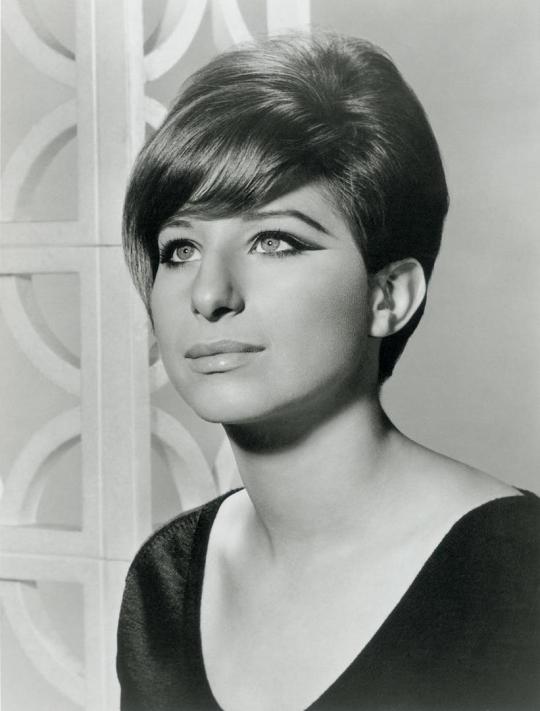
Barbra Streisand (1942-) an EGOT winning actress and singer. Streisand first came to national attention with chart topping hits in the 1960s. Across her career Streisand has had 11 number 1 records the most for a woman on the US charts. In the late 1960s Streisand transitioned to film, winning the Oscar for Best Actress for her first role, 1968's Funny Girl. She followed up with Hello, Dolly! (1969), What's Up Doc? (1972), and The Way We Were (1973) before winning her second Oscar this time for Best Original Song for A Star Is Born (1976) the first time a woman won composing Oscar. Streisand's first try at directing was the Jewish classic Yentl (1983) the first time a woman had written, produced, directed, and starred in a major studio film. She became the first and till 2020 only woman to win the Golden Globe for Best director for Yentl. Streisand has always been politically active from the Civil Rights and anti-War movements of the 1960s, feminism in the 1970s, and LGBT rights in the 2000s as well as being active in Democratic politics going back to the 1972 election.
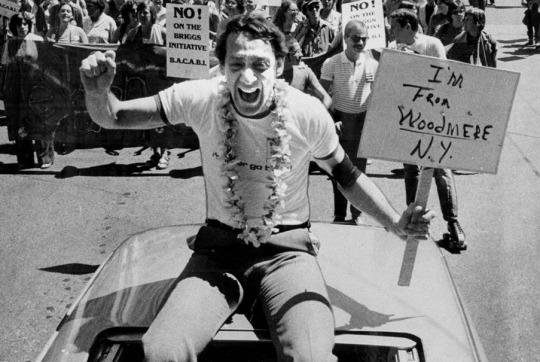
Harvey Milk (1930-1978) The first openly Gay man elected to public office in the United States. Originally from New York Milk moved to San Francisco in the early 1970s and settled in nascent gay neighborhood of The Castro. Milk's small business, Castro Camera soon become a hub of the community. Milk organized gay owned businesses and the local gay community to boycott homophobic businesses and support gay owned ones. He soon earned the nickname "Mayor of Castro Street" for his organizing and leadership of the gay community. He launched his first campaign for office, an election for San Francisco Board of Supervisors, in 1973. Despite being openly gay and sporting classic hippy long hair and a bread Milk swept the Castro and other liberal areas, however he fell short citywide. Milk would run again in 1975, and for State Assembly in 1976 getting closer each time till 1977 when San Francisco introduced districts and Milk won the Castro based District seat. Milk's election made him a national figure and the face for Gay Rights across the country. His brief time in office was consumed by the fight against the Briggs Initiative, a ballot initiative that would have automatically fired any gay teacher or teacher who supported gay rights in California. The Briggs Initiative failed, marking the first time gay rights had won at the ballot box. Harvey Milk and his ally Mayor George Moscone were assassinated on November 27, 1978 by disgruntled former Supervisor Dan White. The Police investigation of White, a former cop, was deeply failed and a straight jury sentenced him to just 5 years for the double murder. In the aftermath of the sentencing the gay community rioted in what is known as The White Night Riots. The gay political movement Milk built in San Francisco remains today with the LGBT community having a powerful voice in local politics.
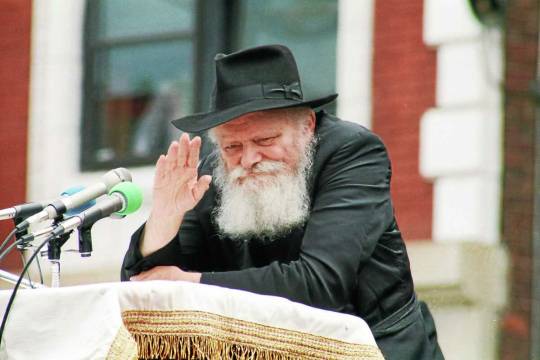
Rabbi Menachem Mendel Schneerson (1902-1994) Born in what is today Ukraine he fled Europe in 1941. In 1951 Schneerson succeed his Father-in-law as the 7th Rebbe of the Chabad-Lubavitch Movement. While all Hassidic movements have Rebbes, Schneerson would become such a towering figure both in Jewish life and outside it to this day nearly 30 years after his death he is still "The Rebbe". During his long reign as the Rebbe Schneerson transformed the Chabad movement into a global Jewish outreach organization. In many parts of the world Chabad houses operate as the sole outpost of Jewish life. It is not uncommon in heavily Jewish areas or events to find Chabadiks asking men if they're Jewish and have wrapped tefillin today. The Rebbe and his movement would be at the center of the 1980s struggle to liberate Soviet Jewry as well as efforts to evacuate Jewish youth from Iran in 1979. The Rebbe started a global Chanukah outreach campaign, trying to assure that individual Jews have their own menorah and candles as well as pushing for public lightings of display menorahs, if your city lights one it's likely a Chabad project. During his life time many of his followers came to believe that he was the awaited Jewish Messiah. After his death the Chabad movement has not elected another Rebbe to replace him and likely never will. His grave in Queens is a major pilgrimage sight not only for Hassidic Jews but seekers of all kinds, Jewish and not. Ever since 1978 Schneerson's birth has been marked in the US by an act of Congress and Presidential decree by every President since Carter as "Education Day" focusing on his life long work for education and learning.

Ruth Bader Ginsburg (1933-2020) The Second woman to serve on the United States Supreme Court. Ginsburg entered law in the 1950s at a time when very few women did, her Harvard Law Class had 500 men and just 9 women. She graduated first from Columbia. She was denied a Supreme Court Clerkship because of her gender. In 1972 Ginsburg organized and became the head of the Women's Rights Project at the American Civil Liberties Union. By 1974 the Project had been involved with 300 gender discrimination cases. As general counsel of the project Ginsburg would argue 6 gender discrimination cases before the Supreme Court between 1973 and 1976, winning 5. She was often compared to Thurgood Marshall in her role fighting for women's rights in Court. She would keep working with the ACLU till 1980 when she was appointed to the US Court of Appeals, Second Circuit by President Carter. She was appointed to the Supreme Court by President Clinton in 1993, as only the second women and the first Jewish woman to serve, she is the longest serving Jewish Justice. Ginsburg was allied with the liberal wing of the Court through out her time on the bench. After Justice O'Connor retired and Ginsburg found herself in the unexpected position as the only woman on the court from 2006 till Justice Sotomayor joined in 2009 she became more outspoken. Ginsburg would become known for her powerful dissents often read from the bench. After Justice Stevens retired in 2010 Ginsburg became the de facto head of the liberal wing of the Court and soon reached cultural icon status with the wider American public.
-----------------
These are just a few of the hugely important Jewish Americans who have impacted and shaped every part of American life and the list if not random is just who I thought of, there were many others I thought about but decided I didn't have room for. Have a good Jewish American Heritage Month this May and learn some Jewish History
563 notes
·
View notes
Text





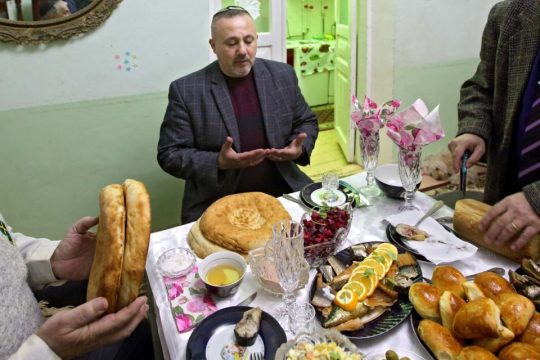
The last Jews of Bukhara, Uzbekistan, 2019, photographed by Bruno Zanzottera
Located along the Silk Roads and the edges of several former empires, the city of Bukhara has been home to a big and unique Jewish community for over two millennia - one of the most ancient ethnic groups in all of Central Asia. Historically they spoke Bukhori a Judeo-Tajik dialect. In the 1970s, Jews began to leave the Soviet Union, including Uzbekistan, and the synagogues as well as other Jewish institutions were closed by the Communist government. In Bukhara, the community has declined significantly: if in the past it consisted of 46,000 people, now there are just over 100 Jews. Those remaining want to make sure that their history, language and traditions do not get lost.
614 notes
·
View notes
Text
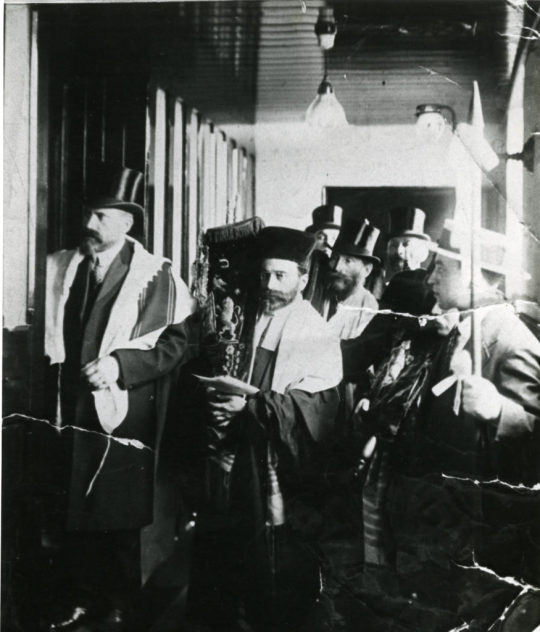
The opening of Hull Central Synagogue, image courtesy of Hull History Centre
63 notes
·
View notes
Text
Alfie Solomons x Jewish!Reader
“If you’ll have me”🧸🕍
Click here for the request
Summary: the oddly timed belated visit to his synagogue gave reason for Alfie to keep visiting (Jewish reader)
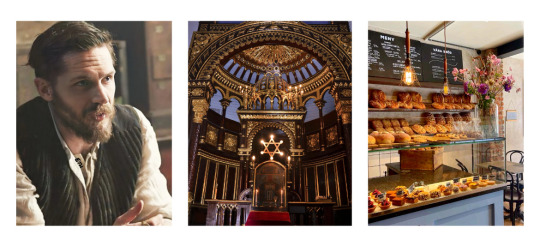
Alfie felt the need to reconnect with his religion, reconnect with Judaism. Reconnect with the community he’d began to stray away from as his unlawful business thrived. Reconnect with his home, with his family, with his truth.
That’s how he ended up at the local synagogue at two oclock on a Tuesday afternoon. He’d inhaled deeply and relished in his transparency, how God could see straight through him yet still welcomed him into this place of worshiped. And Alfie relished in the fact that for once he couldn’t hide, for once he couldn’t argue it with guns. Alfie felt bare; he felt truthful; and he felt free. He felt proud adorning his faithful yarmulke on his head.
But something felt pure, strong, innocent. Something radiated out of the room that wasn’t only Alfie opening his arms to religion once again. It was something purer than he could ever fathom, something addictively bright. Something powerful. Something that drew him closer like a moth to a lamp. Something like you.
Alfie’s eyes immediately darted to you the moment he’d entered the holy house - how could they not? You were the only other person besides him daft enough to be there at such an odd time. You were sat rather centrally in comparison to the room, only a few ways back from the front and mid-row: head bowed. And if Alfie listened closely and tuned his reiteratively ringing ears enough, he could hear your whispers of prayer and they sounded like bliss.
Alfie approached quietly, noticing how the blue taints to your dress contrasted with your surroundings, and how the shade made your skin appear vibrant and more radiant. He noticed the bracelets encapsulating nimble wrists. He noticed your eyes closed, and lips endlessly muttering promises he couldn’t quite make out.
Eventually, his presence became more apparent as he wasn’t necessarily stealthy with his painful limp and wheezy breathing. You looked up at him, connecting your eyes; entrancing him with the siren-worthy whirlpools that stared back at him. But as quick as the connection was made, it was gone as you quickly returned to your familiar mumblings.
You’d ended your prayer and raised your head, basking in the silence as you stared straight ahead of you. Alfie cleared his throat. “Seat taken, love?” He asked, motioning to the bench space beside you. You looked back at him and smiled gently, shaking your head and offered it him “no, no. Please, sit” and Alfie perched himself gently beside you. “Bit of an odd time to talk to God, no?” He asks, staring ahead; similarly to you to mirror your actions. You snort slightly. “Could say the same thing for you.” And he nods in response, thoughtfully appreciating your correct comment. “Plus I’ve not been for a few months so I thought a few minutes alone wouldn’t really hurt.” You shrug. “Oh I’m sorry, did I interrupt?” He asked, turning to look at you, figure towering you slightly. You just shook your hair again. “Not at all. The weights off my shoulders so the time must’ve done some good” you say to him. “What brings you in?” You ask. “Business has kept me away. Need some time to rekindle.”
“What’s a pretty thing like you doing needing to confess, anyways?” He asks and you giggle slightly. “Well, I’ve got to explain why I’ve not visited him for a while.” You look upwards. “But my grandfather just passed and I thought now was a better time than any to start revisiting Judaism.” You explain to the man. “Oh, sorry for your loss sweetheart.” Alfie never said that, but he felt a serious pang in his heart at your saddened expression. “No need, he wasn’t a good man. But it was a good reminder.”
“Well if business has kept you away for so long why are you available at two on a Tuesday?” You ponder, cocking your head to the side in an amiable fashion. “Well business isn’t as busy, and I’ve done a lot of bad business recently. Plus my sciatica’s been playing up recently, must be a punishment from beyond.” He jokes and you hun thoughtfully. “You know I have just the remedy for that.” You tell him and he raises a brow. “Oh yeah? And wha’s tha treacle?” “Chocolate hamantaschen cookies, they always do the trick.” You promise.
“Oh,” he stokes his beard, reminiscing, “i haven’t had one of those in years.” He admits. “Where do you suggest I get one?” He enquires as you begin to stand. “Theres a bakery at the corner of this street. Theirs are alright.” You tell him and he smiles slightly. “I’ll give it a go for you.” He swears and you nod. “Well I best be off, those cookies won’t bake themselves.” You say, beginning to walk away when Alfie practically jumps out of his seat. “Your bakery is it, darlin?” He asks, quickly catching up to you to which you giggle and nod. “Well I need to be trying these cookies now then.” “Doesn’t seem like to have to” you turn back to him “seems like your sciatica’s magically disappeared.” You raise an eyebrow, unimpressed. He grins and taps his nose, replacing the hat on his head “the lord knows.”
Alfie found himself frequenting your bakery once a fortnight. But he didn’t really string together when once a fortnight became once a week. Or when once a week become once daily. Or even when once daily became twice daily, open and close. Or when he started walking you too and from work: but he did, and he wouldn’t have it any other way.
Eventually, Alfie had managed to taste every bake before it entered the storefront market, giving you his input as you chuckle and tut, wiping the crumbs from his beard and wipe the strawberry jam that had gone missing ten minutes ago from his lips. He also found salvage in the synagogue - your presence a more convincing one that made him go at least once weekly, always at a random time on a random weekday, but you still bowed your head and prayed. But now something had changed, you now spoke louder as the burly man next to you would simultaneously bow his head and swear just as you would. He'd then ask if any of those cookies were ready yet and would always burn his mouth after taking one straight from the tray and placing it straight in his mouth.
*Ring*
The bell in the storefront chimed and you moved from the back of the bakery to the front to answer your customer, instead you were face to face with three men, pistols in hand: talking quietly in brummie accents. "Can i help you gentleman?" you ask, wiping the flour on your hands onto your piney and resting them on your hips. "well aren't you a pretty thing?" the youngest one quirked with a smirk on his face. you roll you eyes but the apparent leader begins to speak, the red-haired one distracted by the odd bakes available in the glass display case in front of him. "we'd like you to give a message to Alfie Solomons." he tells you and you cross your arms and shake your head as you feigned confusion "doesnt ring a bell, sorry."
the man smiles slightly. "alright sweetheart, tell Alf that he has some business in Birmingham to attend to right away seeing as he isnt in his office, seems like a know where he has been" he instructs. "Tell me yourself Tommy boy." the familiar voice barks out roughly from the doorway and you exhale slightly at his welcome presence. “Excuse me missus?” The red haired once removed his cap and requested your attention. You looked over to him and hummed. “Can I have a box of those ones with orange in the middle? My young’un loves ones like that.” He admits, sheepishly. You smile and nod, telling him to cost and going to box up the goods. Tommy smacks the back of his brother’s head “fucks sake Arthur”.
“How dare you, come to my missus’ business, demanding her to send a message to me? If she wasn’t here I’d have murdered the lot of ya, yeah? So I suggest you take your saggy little shitty business back to Birmingham, yeah? And make sure my wife doesn’t see it again? Hm?” Alfie seethes. “Thought you didn’t know him?” Thomas narrows his eyes at you and you raise your brows in confusion “know who?” You retort. Alfie soon kicks the three brothers out, after a loud and frustrated conversation outside with a few “fuck yous” and some “if my mrs wasn’t watching I’d smash your heads together” but soon enough he’d just about cleared them off.
You quickly hurried outside, and called out for the one Alfie seemed to argue with the most “you forgot your desserts” he hurries back under the intense eyes of Alfie, thanking you with a sincere smile before rushing back to join his brothers walking away. “Oh my darlin’ I’m sorry-” “your wife?” You ask and he smiles widely, relaxing, putting his arms around you and pulling you into his chest
“if you’ll have me my love”
#masterlist#xreader#smut#fluff#warner sister#angst#requests#x you#imagine#peaky blinders#Alfie#solomons#alfie solomons x yn#alfie solomons x you#alfie solomons x reader#alfie x you#alfie x reader#Tommy#Shelby#Thomas Shelby#Arthur Shelby#John Shelby#Jewish#jewdiaism#Arthur#John#Alfred#Peaky#blinders#Polly
143 notes
·
View notes
Text
Daily update post:
An armed drone hit a school in Eilat. Seven kids had to be taken to a hospital. We still don't officially know who sent the attack drone, or how it wasn't intercepted. The options are that it was either sent from Yemen (less likely), from the ISIS terrorists in Sinai (Egypt) or from Jordan. Just a reminder: Eilat has a population of 51,000 and it has absorbed at least 60,000 of the evacuated Israelis who had survived Hamas' massacre.
In an independent terrorist attack, Palestinians fired at an Israeli car, wounding two adults (one severely and one moderately), but thankfully missing the baby who was also in the vehicle.
The Mossad (the Israeli equivalent of the CIA) helped authorities in Brazil prevent a Hezbollah terrorist attack against Jews there. In 1994, Hezbollah successfully carried out a terrorist attack against a Jewish community center in Argentina, killing 85 people and injuring over 300. Hezbollah is currently still attacking Jewish communities in Israel's north with rockets and drones.
Yesterday, for the first time in decades, Jews prayed in the ancient, 1,500 years old synagogue in Gaza (yes, older than the Arab colonization of the Land of Israel). Here's a delegation of archeologists examining the mosaic floor of the synagogue:

The mosaic includes the image of the Jewish King David, playing a lyre, with his name appearing in Hebrew letters.
The IDF has explicitly put out the message for Gazans today, that if Hamas is stopping them from evacuating, they can turn to the Israeli army for help.
Hamas' second in command in Gaza, Khalil al-Haja, told the New York Times, that the purpose of the massacre wasn't to bring prosperity to Gaza, it's to create a permanent state of war for Israel on all of its borders (meaning by facilitating a regional war, forcing other Middle Eastern elements to join the war against Israel).

HonestReporting is an NGO that was established in 2000 to combat the anti-Israel bias in many news outlets (it happened because a pic of an Israeli policeman saving a Jewish American tourist from Arabs attacking him, was published by the New York Times as the pic of an Israeli policeman attacking a Palestinian).

Now, HonestReporting has published a report on Gazan journalists, who provided materials for Reuters, AP, CNN and the New York Times, and were there for Hamas' massacre, on the border of Israel, early in the morning on Saturday (Israel's day of rest). HR is posing the question of how did these journalists know to be present there, at that time. HR is also pointing out that they entered Israel together with Hamas' terrorists, raising ethical questions about their presence and inaction at the scene of these horrors as they were happening. Following the report, HR was also sent a pic of one of these journalists been kissed on the cheek by Yahya Sinwar, the head of Hamas in Gaza.
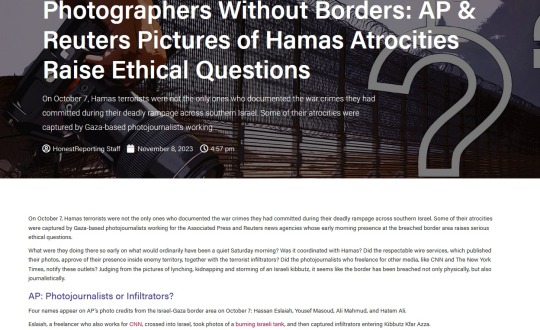
I find it so touching when people from backgrounds hostile to Israel, still manage to look beyond that, and see us as people. This is the bridge to the peace that I personally still wanna believe we'll have in this region one day:
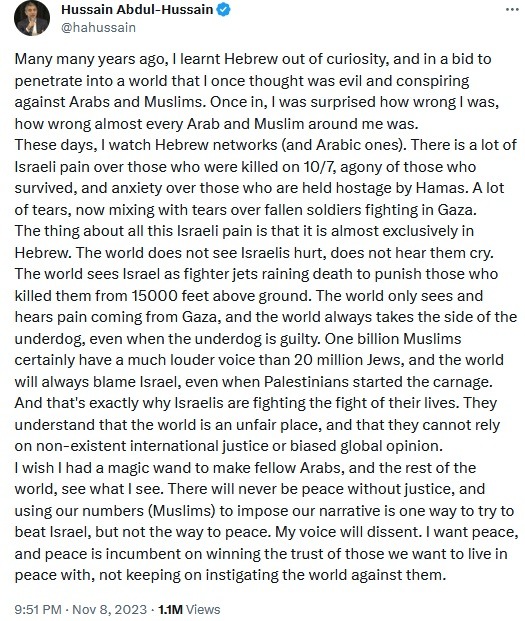
Israeli police is putting together a case against the Hamas terrorists who executed the massacre, and who were caught alive. So far, over 700 testimonies of survivors have been collected, as well as tens of thousands of digital files. The terrorists' interrogations will also be included. Some of these have been published. One thing that they recounted is that they were given religious permission to murder women, children and babies. They also said that the purpose of the rapes and beheadings was to terrify the Israeli public. Lastly, they admitted that the plan was to make it from southern Israel to the central region, too (where Tel Aviv and Jerusalem are).
This is Avihu Mori, he was recognized as a mental health patient, due to severe PTSD. Every time Palestinian rockets were fired into Israel, his family said he would start falling apart, and acting illogically. During the current war, it happened again, he ran away, crossed the border into Gaza and was killed there.

(for all of my updates and ask replies regarding Israel, click here)
#israel#israeli#israel news#israel under attack#israel under fire#israelunderattack#terrorism#anti terrorism#antisemitism#hamas#antisemitic#antisemites#jews#jew#judaism#jumblr#frumblr#jewish
131 notes
·
View notes
Text
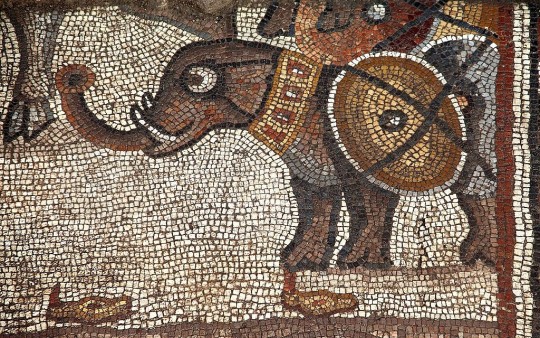
Elephants agog in the synagogue
This mosaic of a wide-eyed elephant was discovered by archaeologists in a fifth-century synagogue in Huqoq, Galilee. It is part of a scene where a white-haired Jewish leader confronts a general in Greek garb and his troops, including elephants. There has been a lot of debate about exactly who the two central figures are: was the warrior Alexander? Nero? Are they just symbolic and don't represent any particular incident? To add to the mystery, synagogues from this period rarely depicted non-Biblical events. Jodi Magness, who led the dig that uncovered the mosaic, argued that the elephants show this scene was not Biblical, since elephants do not obviously occur in the Bible (although ivory and some otherwise unidentified big beasts do crop up).
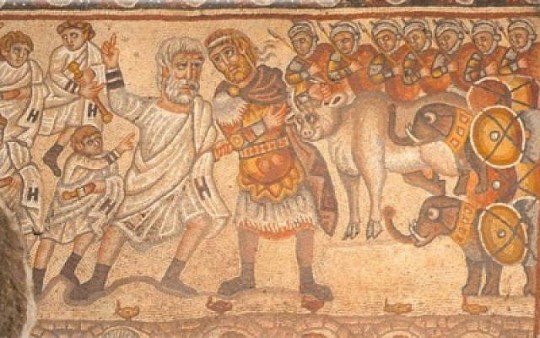
Whatever it depicts, the scene seems to suggest that there was a happy ending and that the war elephants were not deployed!
Material: mosaic
Date: late 4th or early 5th century AD
Origin: Huqoq, Galilee
Image source (x)
108 notes
·
View notes
Text
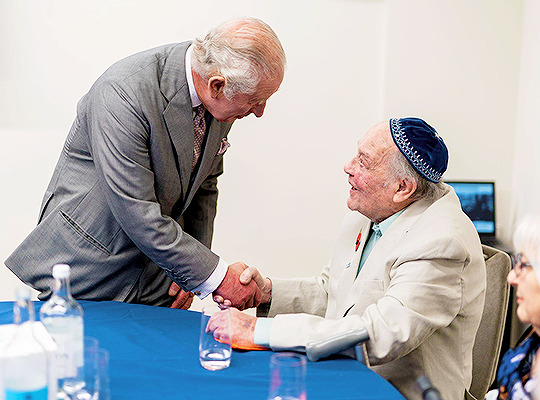
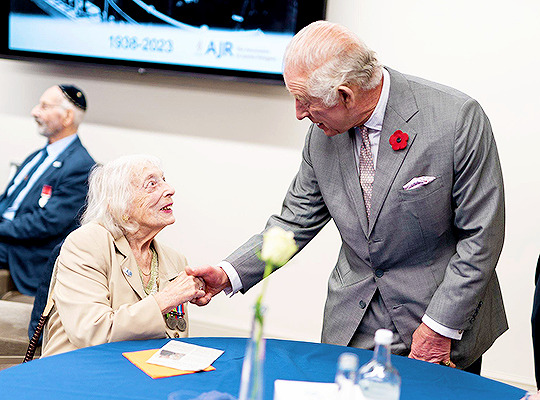



British Royal Family - King Charles III meets Kindertransport refugees, from the Association of Jewish Refugees, during a visit to the Central Synagogue in central London to commemorate the 85th Anniversary of Kristallnacht, in London, England | November 9, 2023
#royaltyedit#theroyalsandi#charles iii#king charles iii#charles edit#charles edit 2023#charles 2023#charles nov 2023#charles solo#charles solo 2023#charles solo nov 2023#2023#british edit#british edit 2023#british 2023#british nov 2023#british royal family#nov 2023#my edit
120 notes
·
View notes
Text
Who are the Mizrahim? History 101
Where do Jews come from and what is the difference between Sephardim and Mizrahim? Loolwa Khazzoom gives this succint explanation for the Jewish Virtual Library:
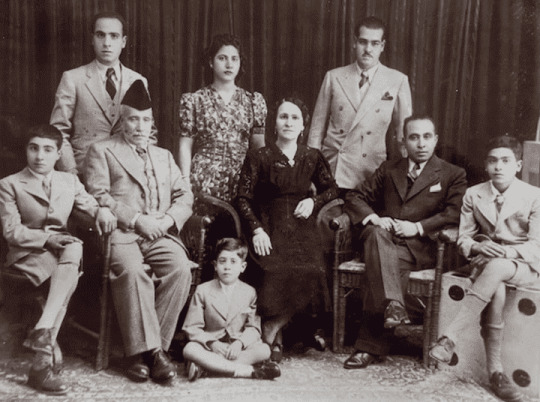
A Baghdadi Jewish family
Regardless of where Jews lived most recently, therefore, all Jews have roots in the Middle East and North Africa. Some communities, of course, have more recent ties to this region: Mizrahim and Sephardim, two distinct communities that are often confused with one another.
Mizrahim are Jews who never left the Middle East and North Africa since the beginnings of the Jewish people 4,000 years ago. In 586 B.C.E., the Babylonian Empire (ancient Iraq) conquered Yehudah (Judah), the southern region of ancient Israel.
Babylonians occupied the Land of Israel and exiled the Yehudim (Judeans, or Jews), as captives into Babylon. Some 50 years later, the Persian Empire (ancient Iran) conquered the Babylonian Empire and allowed the Jews to return home to the land of Israel. But, offered freedom under Persian rule and daunted by the task of rebuilding a society that lay in ruins, most Jews remained in Babylon. Over the next millennia, some Jews remained in today’s Iraq and Iran, and some migrated to neighboring lands in the region (including today’s Syria, Yemen, and Egypt), or emigrated to lands in Central and East Asia (including India, China, and Afghanistan).
Sephardim are among the descendants of the line of Jews who chose to return and rebuild Israel after the Persian Empire conquered the Babylonian Empire. About half a millennium later, the Roman Empireconquered ancient Israel for the second time, massacring most of the nation and taking the bulk of the remainder as slaves to Rome. Once the Roman Empire crumbled, descendants of these captives migrated throughout the European continent. Many settled in Spain (Sepharad) and Portugal, where they thrived until the Spanish Inquisition and Expulsion of 1492 and the Portuguese Inquisition and Expulsion shortly thereafter.
During these periods, Jews living in Christian countries faced discrimination and hardship. Some Jews who fled persecution in Europe settled throughout the Mediterranean regions of the Ottoman (Turkish) Empire, as well as Central and South America. Sephardim who fled to Ottoman-ruled Middle Eastern and North African countries merged with the Mizrahim, whose families had been living in the region for thousands of years.
In the early 20th century, severe violence against Jews forced communities throughout the Middle Eastern region to flee once again, arriving as refugees predominantly in Israel, France, the United Kingdom, and the Americas. In Israel, Middle Eastern and North African Jews were the majority of the Jewish population for decades, with numbers as high as 70 percent of the Jewish population, until the mass Russian immigration of the 1990s. Mizrahi Jews are now half of the Jewish population in Israel.
Throughout the rest of the world, Mizrahi Jews have a strong presence in metropolitan areas — Paris, London, Montreal, Los Angeles, Brooklyn, and Mexico City. Mizrahim and Sephardim share more than common history from the past five centuries. Mizrahi and Sephardic religious leaders traditionally have stressed hesed (compassion) over humra (severity, or strictness), following a more lenient interpretation of Jewish law.
Despite such baseline commonalities, Middle Eastern and North African Mizrahim and Sephardim do retain distinct cultural traditions. Though Mizrahi and Sephardic prayer books are close in form and content, for example, they are not identical. Mizrahi prayers are usually sung in quarter tones, whereas Sephardic prayers have more of a Southern European feel. Traditionally, moreover, Sephardic prayers are often accompanied by a Western-style choir in the synagogue.
Mizrahim traditionally spoke Judeo-Arabic — a language blending Hebrew and a local Arabic dialect. While a number of Sephardim in the Middle East and North Africa learned and spoke this language, they also spoke Ladino–a blend of Hebrew and Spanish. Having had no history in Spain or Portugal, Mizrahim generally did not speak Ladino.
In certain areas, where the Sephardic immigration was weak, Sephardim assimilated into the predominantly Mizrahi communities, taking on all Mizrahi traditions and retaining just a hint of Sephardic heritage — such as Spanish-sounding names. In countries such as Morocco, however, Spanish and Portuguese Jews came in droves, and the Sephardic community set up its own synagogues and schools, remaining separate from the Mizrahi community.
Even within the Mizrahi and Sephardi communities, there were cultural differences from country to country. On Purim, Iraqi Jews had strolling musicians going from house to house and entertaining families (comparable to Christmas caroling), whereas Egyptian Jews closed off the Jewish quarter for a full-day festival (comparable to Mardi Gras). On Shabbat, Moroccan Jews prepared hamin (spicy meat stew), whereas Yemenite Jews prepared showeah (spicy roasted meat), among other foods.
Read article in full
The post Who are the Mizrahim? History 101 appeared first on Point of No Return.
Read in browser »
73 notes
·
View notes